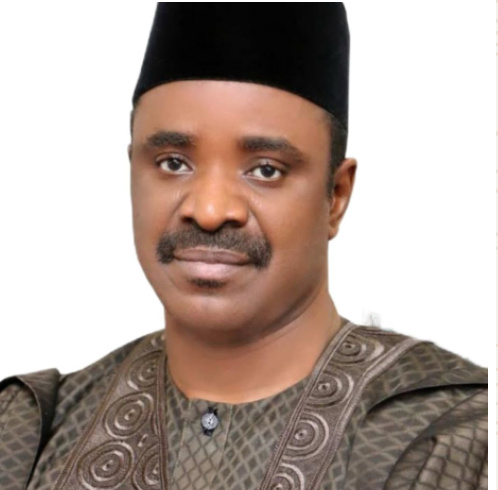
From Policy to Progress – Tinubu’s Bold Hugs on Nigeria’s Transport Sector
By Abdullahi O Haruna Haruspice
In a country where grand political declarations often fizzle into dust, President Bola Ahmed Tinubu’s administration is scripting a quiet revolution in the transport sector—one that may yet define his legacy as a reformist leader. At the heart of this transformation is the taciturn yet mercurial Minister of Transportation, Senator Saidu Ahmed Alkali, whose disciplined stewardship and technocratic precision have ignited hope in one of Nigeria’s most critical but historically neglected sectors.
While some revolutions are noisy, this one is intelligent, coordinated, and deeply strategic. In just under two years, the Tinubu administration has laid the foundation for what could become Nigeria’s most comprehensive, inclusive, and future-facing transport renaissance.
For the first time in Nigeria’s history, the nation stands on the cusp of adopting a National Land Transport Policy. This policy—now awaiting the approval of the Federal Executive Council—is not merely a document. It is the birth of a unified vision, harmonizing Nigeria’s disjointed and inefficient land transport systems under a single strategic framework. When signed into law, it will define priorities, streamline intermodal integration, and offer a clear blueprint for private sector investment and sustainability.
The steel arteries of Nigeria’s economy—the railway lines—are being revived with unprecedented vigour. Under President Tinubu’s leadership, what was once a skeletal promise of rail modernization has become a breathing reality. The Kaduna-Kano and Kano-Maradi segments of the Standard Gauge rail lines, which were a mere 15% completed as of May 2023, have now crossed the 50% milestone. This is not progress by political metrics, but by engineering and economic ones.
Moreover, the Lagos-Ibadan and Abuja-Kaduna lines—partially completed in previous administrations—have received renewed attention. The administration’s push to finalize the APMT Terminal in Apapa has drastically eased congestion in Lagos. Over 105 containers are now ferried daily by rail, reducing the heavy burden on our road networks and cutting turnaround time for businesses. With vehicular overpasses constructed to separate rail from road traffic, accidents and delays are becoming relics of the past.
In a bold move to curb revenue leakages and ensure efficiency, e-ticketing has been launched across the Lagos-Ibadan, Warri-Itakpe, and Abuja-Kaduna rail corridors. This digital leap supports financial transparency and enhances passenger convenience. Combined with the retrofitting of NRC locomotives, particularly along the Abuja-Kaduna route, commuters are now enjoying faster, safer, and more reliable services.
One of the most forward-looking initiatives of this administration is the Railing with States initiative and the Track Access Program. These innovative schemes invite state governments and private investors into the rail operations space, adhering strictly to global standards. It is a masterstroke that decentralizes opportunity and democratizes development—encouraging local ownership while setting a new precedent for public-private synergy.
With the soaring cost of living, Tinubu’s administration did not leave the masses behind. The implementation of the 50% Road and 100% Free Rail Presidential Transport Palliatives during the 2023 and 2024 yuletide seasons provided immense relief to Nigerians. These were not token gestures, but practical interventions that touched lives directly, reaffirming the president’s people-first philosophy.
Railway expansion under Alkali’s stewardship has not just focused on new lines. The historic Port Harcourt-Maiduguri narrow-gauge corridor is being revived. The Port Harcourt–Aba stretch is already completed and operational, linking forgotten regions back into the national economic grid and laying tracks of opportunity in their path.
The shift to Compressed Natural Gas (CNG) is a game-changer for both the environment and the economy. With the National Institute of Transport Technology (NITT) establishing CNG conversion centres and training technicians nationwide, Nigeria is embracing cleaner energy, lowering costs, and empowering a new generation of green engineers. This speaks to a sustainable vision that values both present gains and future generations.
In another silent yet seismic shift, the NITT has facilitated the establishment of a Smart National Transport Data Bank. With it comes improved public safety, enhanced revenue tracking, and optimized operations. For the first time, the transport sector is becoming data-driven, allowing policymakers and businesses to plan with precision.
Perhaps the most inspiring feather in the administration’s cap is the successful takeoff of the Federal University of Transportation, Daura—Nigeria’s first specialized university for transport studies. From recruitment to matriculation, the institution is already shaping the minds that will drive Nigeria’s mobility revolution. Through collaborations with global universities and engineering firms, the university is set to become a hub for technological transfer, research excellence, and policy innovation.
Senator Saidu Ahmed Alkali may not be the loudest minister in Tinubu’s cabinet, but his results speak volumes. He is charting a course not of fleeting announcements but enduring legacies. The president’s decision to place the transport portfolio in Alkali’s capable hands was visionary—and Nigeria is already reaping the rewards.
President Tinubu’s “Renewed Hope” mantra is manifesting itself in steel rails, digital tickets, smart data banks, clean energy, and empowered citizens. His administration’s work in the transport sector offers a compelling case study in strategic vision, disciplined execution, and quiet impact.
In a country long accustomed to motion without movement, the Tinubu-Alkali axis is finally putting Nigeria in gear. And this time, the destination is progress. Going further, in this administration, Nigerians will continue to get the best from the transportation sector.
